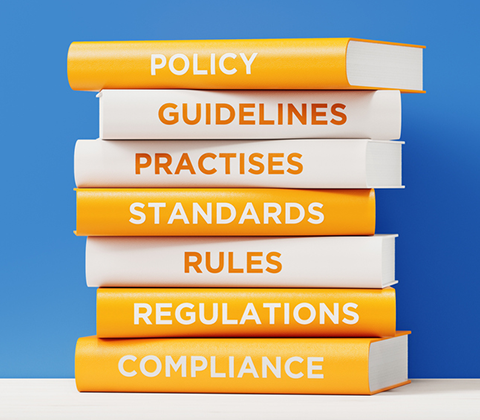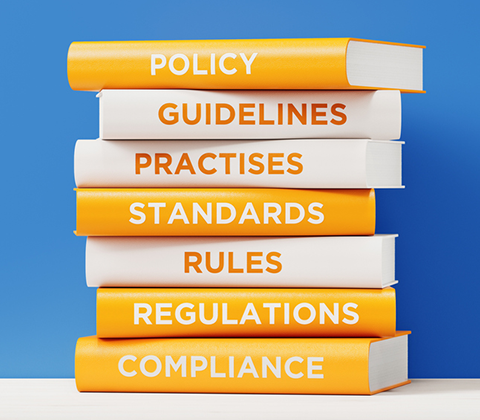The NRLA promises a ‘sensible, straightforward solution’, while the TLIC wants to ‘find a balance between encouraging investment in the sector to increase available homes and ensure they are of consistent good quality’.
What is the Renters’ Reform Bill?
Aiming to address growing concern around the lack of social housing, the difficulties faced by a generation feeling that home ownership is unattainable and a swathe of media coverage of rogue landlords throughout the UK, the Renters Reform Bill will ‘improve the lives of millions of renters by driving up standards in the private and socially rented sector’, according to the Department for Levelling Up, Housing and Communities.
The announcement of the bill features the following key points:
- The bill represents the ‘biggest change to renters law in a generation’ and will look to improve conditions and rights for millions.
- Legislation will aim to improve quality for private renters by extending the Decent Homes Standard to the sector for the first time, as well as providing all renters the legal right to a safe, warm home.
- Section 21 ‘no fault’ evictions will end in an effort to protect tenants from unscrupulous landlords, while also strengthening the legitimate grounds available for landlords to take back their property.
- New legislation will be passed for social renters, with regular, rigorous inspections and providing stronger powers to tackle failings by social housing landlords.
What the TLIC are saying
The Lettings Industry Council (TLIC) report deals predominately with how to deal with the end of Section 21 notices, and what can be done to make a success of the move for both landlord and tenant alike. Among the key recommendations the report makes are the following:
- All tenancies should have a written tenancy agreement or, at least, a written Statement of Terms in place, with the Model Tenancy Agreement used as the default agreement where there is none.
- The route for dealing with ‘abandonment cases’ needs to be clarified, removing the need for recourse to the court where a tenant has clearly already left the property.
- Cases with high or persistent rent arrears should be prioritised, dropping review hearings, while more judges should be employed to further reduce the workload and strain on the courts.
- Other than where there is clear evidence the tenant cannot afford to pay the rent; mediation should be a recommendation in all cases. This could reduce court hearings by up to 25%.
- Government should consider providing its own bond/loan solution or offer financing for local authorities to issue their own bond guarantees for tenants on Universal Credit and/or in receipt of specified benefits. This would ensure that the deposit problem is specifically targeted at the right demographic.
- Using Unique Property Reference Numbers (UPRN) would allow for a single, searchable source of documentation for rental properties.
- A Regulator for Regulation to help simplify and centralise a host of complicated processes and provide tenants with a single portal which then signposts where they need to go.
Chair of The Lettings Industry Council, Theresa Wallace, released the following statement:
“Each year, in an attempt to combat some of the issues experienced in the private rented sector, including sub-standard properties, rogue and naïve landlords, and untrained agents, more and more legislation has been introduced, confusing even diligent landlords with the complexities in providing a rental home.
“So far, these changes to legislation, which often come at a financial cost to the landlord, have just compounded the problems further and is a core reason given for why landlords are exiting the sector, leaving a shortfall of available rental properties.
“As a result, in 2022 we are experiencing the biggest crisis we have seen surrounding the shortage of rental property. We need to encourage investment into the market and that includes private landlord investment.
“The Renters’ Reform Bill provides a once in a generation opportunity to improve the lives of Renter’s. However, in order to achieve maximum impact and create true strategic change, we believe it is crucial to phase in these significant changes in a considered manner over a period of time, avoiding unexpected unintended consequences which only hurt those we are seeking to protect the most – tenants.
“This report seeks to find a balance between encouraging investment in the sector to increase available homes and ensure they are of consistent good quality through natural supply and demand competition.”
What the NRLA are saying
Focusing on a subject we’ve mentioned previously – the ‘Property Passport’, the NRLAs main proposal ties in nicely with points six and seven of the TLICs recommendations – allowing for the centralisation of documentation and the simplification of the process of proving compliance to both government and to tenants, which would then also make enforcement easier in turn.
The report, linked to in a blog by Chief Executive, Ben Beadle, makes the point that the overwhelming majority of properties in the private rental sector are already compliant with regulations and that their passport scheme would make rooting out the rogue elements in the sector far easier while also simplifying the process of checking out prospective properties and landlords far easier for tenants.
In the conclusion of the report, the NRLA states the following:
- The drive to ensure private rented homes are decent is one which the NRLA fully supports. Most landlords already provide this. The problems lie in a misleading assumption that the sector is under regulated.
- As the Government considers its plans, it needs to accept that, as outlined in this paper, the standards expected of the sector are already there. What is needed is an improved framework within which landlords can clearly demonstrate compliance with those standards, backed up by robust enforcement of them.
- Our proposals would achieve these twin objectives and the NRLA looks forward to engaging with the Government and others as we work to ensure the sector works for both tenants and responsible landlords.
However, the foreword – by Beadle and Jodie Berg OBE – offers a fairly comprehensive and concise argument in favour of the scheme, stating:
“That is why, aside from having clear expectations of both private and social rented housing, mechanisms need to be developed to enable all types of landlords to demonstrate that the properties they let meet these standards. Those who already do this have nothing to fear from such a move. All it would do is provide clear information to tenants that properties are of a decent quality through the development of a property passport.
“Setting standards is not the only answer. In the end, all the rules in the world will mean nothing unless they are properly enforced. Data that the NRLA has obtained under the Freedom of Information Act shows that far too many councils are failing to make use of the powers they already have to tackle bad practice.
“Aside from the acute problems this causes affected tenants, the vast majority of responsible landlords feel frustrated and let down when those failing to do the right thing seem to get away with it. All they do is bring the sector into disrepute.
“The NRLA stands ready to work constructively with the Government and others on this important issue. However, it is vital that it results in proposals that are both clear to understand and can be properly enforced.”
What this means for Wirral landlords
As things stand, both organisations are still at the lobbying stage – but with what appear to be a fairly unified message, and some realistic recommendations, the hope for local landlords (and the industry more broadly) is that it could stave of an increase in regulation in favour of an increase in accountability and a refinement of existing processes.
As with most things in politics, such reports and bills move slowly, but it’s interesting to see what seem to be workable proposals from representatives of the private rental sector in advance of the bill itself – and we can only hope that common sense prevails and further legislation and legislative changes can be avoided and existing ones improved upon for the benefit of landlord and tenant alike.
The sector is in what seems to be a constant state of flux at the moment, with reports, reviews, laws, legislation and regulation cropping up at speed. Need some help keeping up? Contact Us to see what our experts can do to help.









